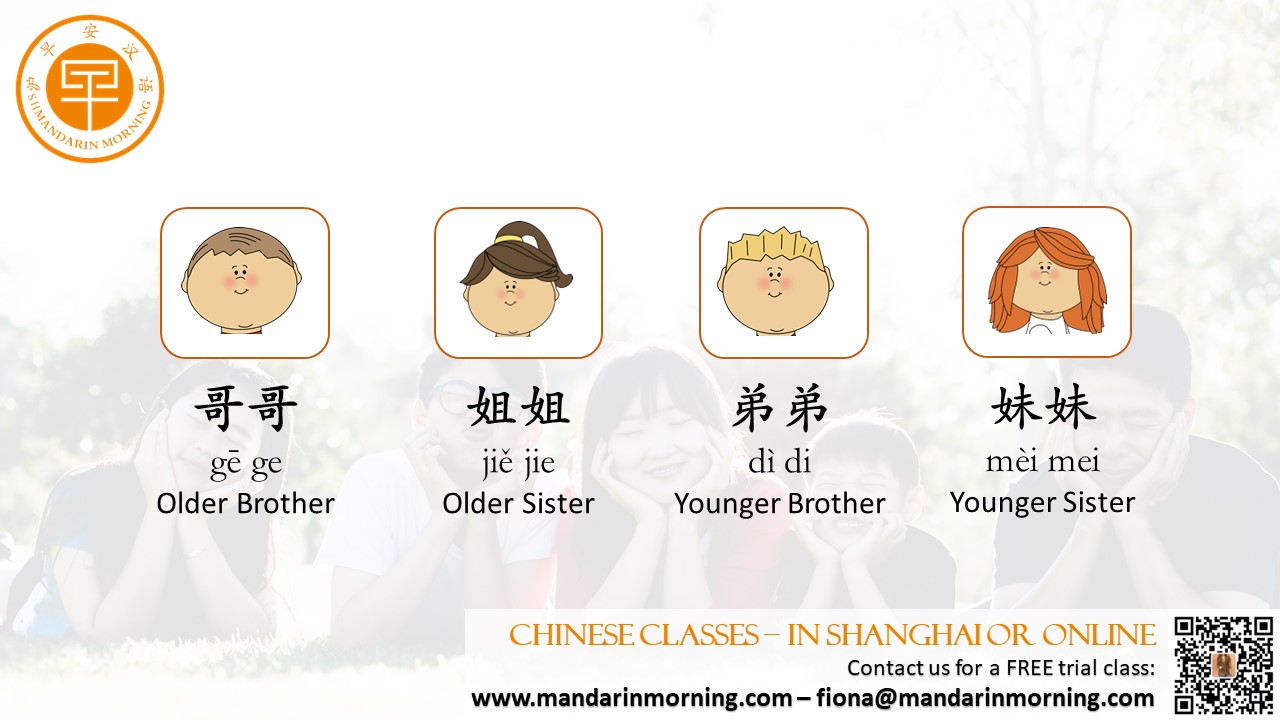| Because family relationships are believed to be essential bonds within Chinese society, it comes as no surprise that the terms of address for family members are both thoughtful and complex. In English, we take generation, and often gender, into account when deciding what to call our family members. However, we don’t tend to have different words for maternal versus paternal relatives. For example, whether you are discussing your mom’s older sister or your dad’s younger sister, it is always appropriate to address either parent’s female sibling as “aunt,” no matter the exact nature of your relationship. In Chinese, on the other hand, there are many different words for “aunt” which change depending on a variety of factors. When discussing the members of one’s family tree in Chinese, it's important to clarify kinship and blood ties as clearly as possible. In addition to gender and generation, considerations like maternal versus paternal lineage, marriage versus blood relationships, and relative age should all be taken into account. In China, addressing family members in the correct way is considered a sign of respect. Conversely, using an incorrect term of address can be seen as very disrespectful.  Talking about immediate family in Chinese Let’s begin by learning the terms of address for the basic family unit. Happily, these are relatively straightforward in Mandarin. 母亲 (mǔqin) - mother (formal) 妈妈 (māma) - mom (informal) 父亲 (fùqin) - father (formal) 爸爸 (bàba) - dad (informal) 妻子 (qīzi) - wife (formal) 老婆 (lǎopo) - wife (informal) 丈夫 (zhàngfu) - husband (formal) 老公 (lǎogōng) - husband (informal) 哥哥 (gēge) - older brother 姐姐 (jiějie) - older sister 弟弟 (dìdi) - younger brother 妹妹 (mèimei) - younger sister 儿子 (érzi) - son 女儿 (nǚ'ér) - daughter |